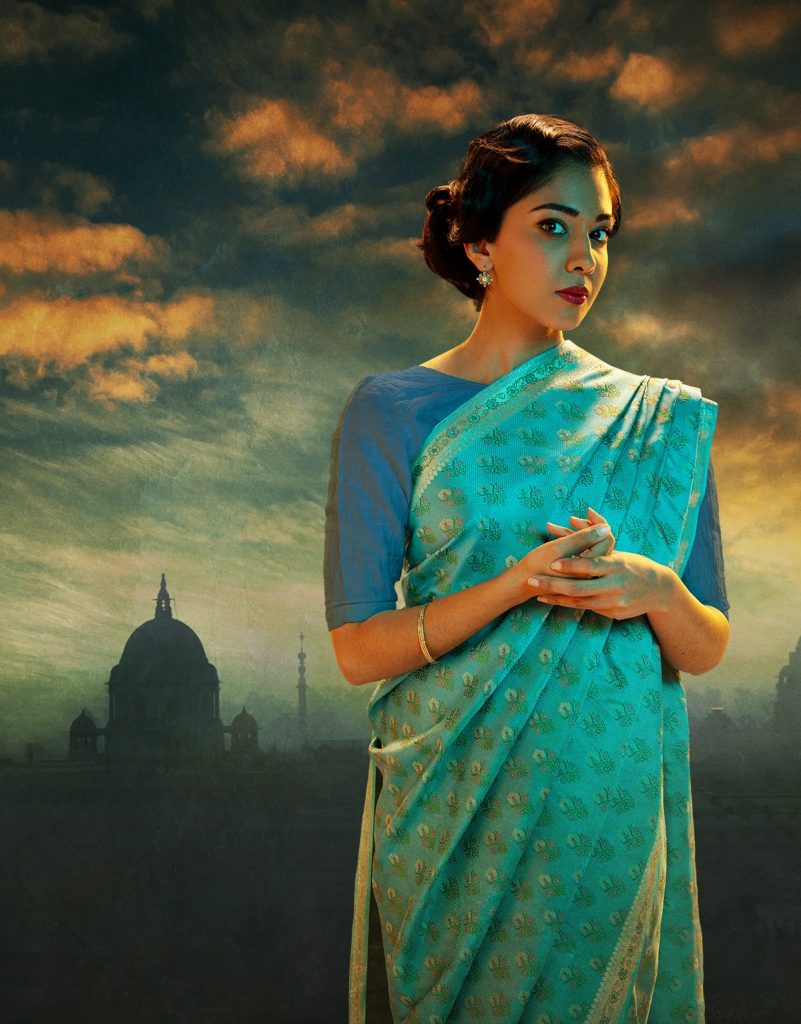
Credit: Emily Cooper
At Bard on the Beach until August 18, 2019
Tickets from $26 at bardonthebeach.org or 604-739-0559
Posted July 1, 2019
When co-directors Johnna Wright and Rohit Chokhani decided to set All’s Well That Ends Well in India in 1947, they opened the door to colourful costumes – saris in hot pink, sun-drenched yellow, cool aquamarine – exotic music and exuberant dance. They also opened a window on India’s history on the cusp of Partition – a dividing of the nation that continues to create tension between India and Pakistan today.
The stage is beautifully set by Pam Johnson: three Moorish-style, terracotta-coloured arches with a series of wooden, louvered doors. Lit by Alan Brodie and Conor Moore, it looks warm and elegant – with a very English silver tea service and china cups. A quick switch with props and the elegance is transformed into a bustling Punjabi marketplace with burlap sacks and a wooden cart.
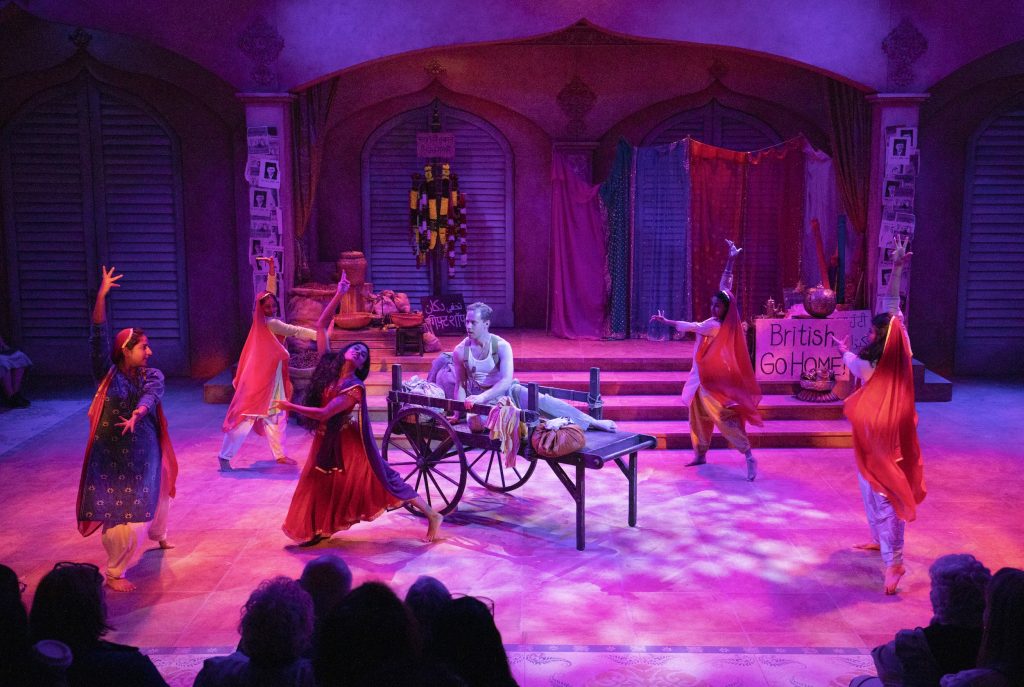
Costumes: Carmen Alatorre
Lighting: Alan Brodie and Conor Moore
Credit: Tim Matheson
Costume designer Carmen Alatorre goes wild with colour and texture on the women: silk saris trimmed with gold and sheer scarves in every colour of the rainbow. Soldiers are in khaki; male servants are in white.
Sound designer Ruby Singh draws from classical Hindustani music and Punjabi folk music and, clearly, choreographer Poonam Sandhu has worked hard with the cast to enliven the play with joyful, sensual dance.
This All’s Well That Ends Well looks and sounds gorgeous.
But the play’s the thing and this is one of Shakespeare’s so-called ‘problem plays’ – plays, rife with ambiguity, that sometimes awkwardly combine comedy and tragedy and can be seen to be somewhat open-ended.
And it’s another of Shakespeare’s play that leaves us wondering why an intelligent woman (such as Helena in this play) falls for such a cad (in this case, Bertram). And, worse, why we should see her married at the end as a good thing, a blessing. Wright and Chokhani tweak the ending just a little to make it a bit more palatable but still . . . .
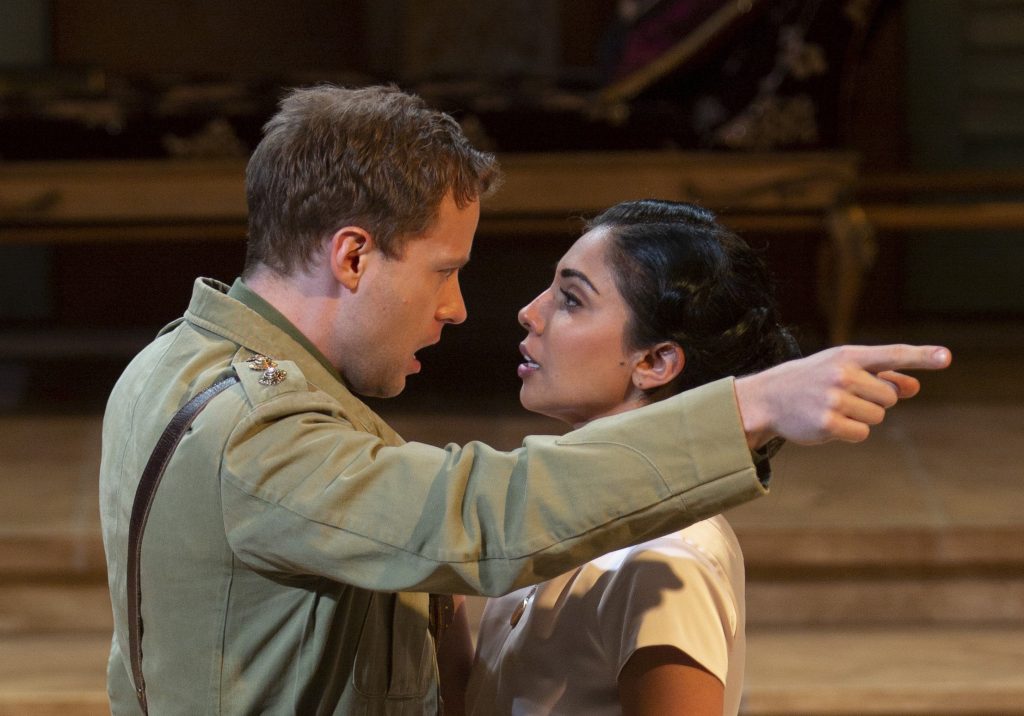
Credit: Tim Matheson
Helena (Serena Parmar), the ward of the Countess (Lucia Frangione), falls for Bertram (Edmund Stapleton), the Countess’s son. Helena is not of the same class as Bertram but receives the blessing of the Countess, nevertheless. Inheriting her deceased father’s skill as a doctor, Helena succeeds in curing the Viceroy (Bernard Cuffling) of what ails him and in return, he grants her the right to marry any man of her choosing. Helena chooses Bertram; he publicly rejects her but is forced by the Viceroy to marry her. “I will not bed her. I will never bed her”, says the jerk. He calls her his “detested wife” and he goes off to war, leaving Helena devastated and humiliated.
Through trickery involving Diana (Pam Patel) it all works out if – and only if – you think there’s hope for the marriage between Helena and Bertram.
As Helena, Serena Parmar is absolutely lovely: to begin with, Parmar is simply beautiful and has incredible grace, dignity and elegance on stage. We may not understand why her character loves Bertram but we truly believe she does.
As Bertram, Edmund Stapleton does not fare as well. The only way we can buy into this marriage is if the actor shows Bertram’s inner conflict – a suspicion that the class system is rotten and outmoded – and/or he is also tremendously charismatic. As we do with Petruchio (in Taming of the Shrew), we have to find something in the man to like. In this production, I don’t think we do.
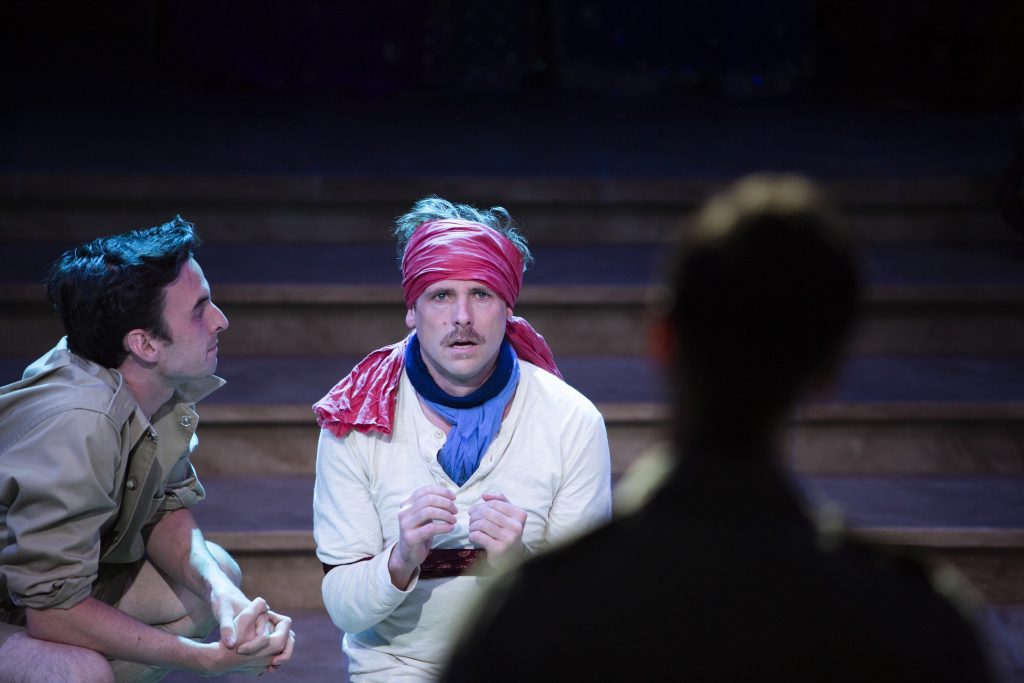
Credit: Tim Matheson
There is another problem with this ‘problem play’: much time is spent duping Parolles (Jeff Gladstone) and subjecting him to indignities. It’s supposed to be funny; it isn’t. These aren’t kids in a playground these are grown men, soldiers in uniform and it’s never clear exactly what Parolles has done to deserve such treatment. That being said, Gladstone does a great job of bringing levity to a play which, otherwise, has little humour in it.
As Diana, Pam Patel is gorgeous, outspoken and mischievous. And while it may not be good critical practise to talk about how beautiful a cast is, in this case it’s unavoidable. Without doubt, this is the best looking, multi-cultural cast to grace the Howard Family Stage.
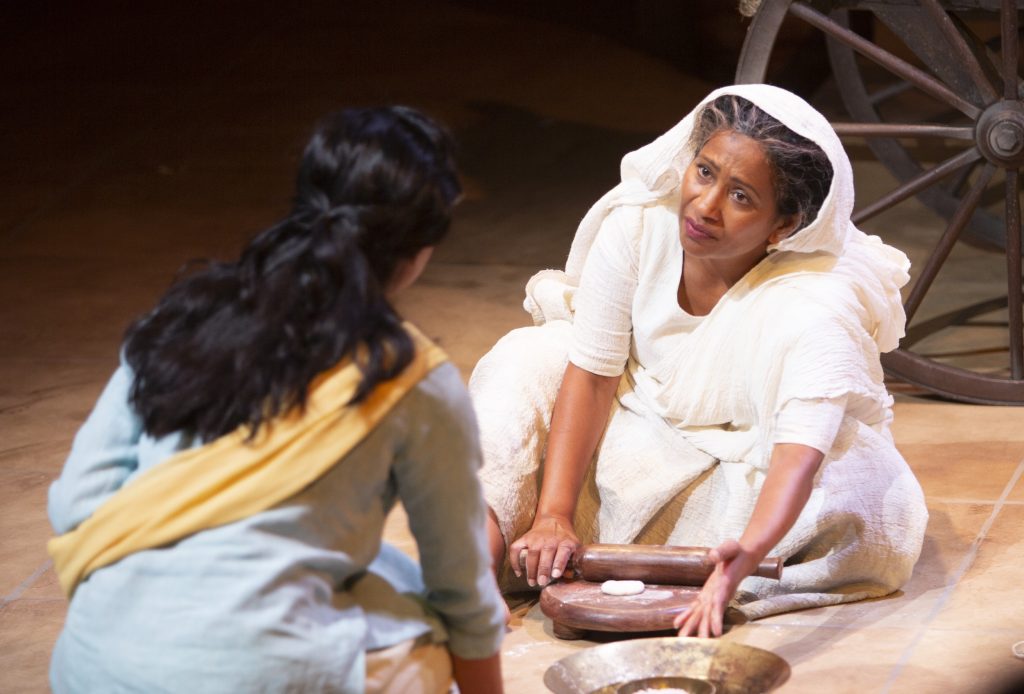
Credit: Tim Matheson
There is also a fair bit of Hindi spoken – mostly by the Widow (Veenesh Dubois) – but a cheat sheet is provided although, in context, much of it is readily understood anyway.
So: a mixed review of this All’s Well That Ends Well. Production is 10 out of 10 and I appreciated the open end. Maybe, just maybe, it ends well. But not likely.

